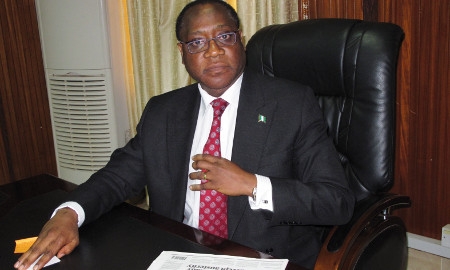Investors have been arriving to Nigeria in their droves over the last few years, drawn mainly by the country’s lucrative oil industry. However, plentiful opportunities also abound in infrastructure, power and manufacturing. Olusegun Aganga, the Minister of Trade and Investment shares how the Nigerian government is now making increased efforts to improve the business environment and diversify the economy.
With Nigeria becoming the King of Africa in terms of FDI, what are your thoughts on the recent outstanding results for the country in terms of investment?
Nigeria is a vibrant and dynamic economy, having attracted $8.9 billion of investment in 2011. That is a good story to tell, and because of that, Nigeria is the number one destination for investment in Africa. There is money to be made here. Investors are looking for countries with a market and the raw materials, so that the costs of production are lower. If you look at the market, we have 167 million people in Nigeria, and this figure is growing at 3 per cent per annum. We are also the gateway to ECOWAS, and ECOWAS in total has 300 million people. The market is there.
As you say, Nigeria has certain natural advantages, namely oil. The $1bn Sovereign Wealth Fund was created last year, not just to safeguard oil revenues but also help diversify the economy…
The fund is actually a creative solution to the problems we have been experiencing in the country, but it is also an instrument for diversifying the economy. It has three different sections. One, oil is a depleting asset and young Nigerians have a right to a share in that wealth, so we need to save for the future generation. The second area is supposed to be for budgetary adjustment. The last section is an infrastructure fund. There are two things that are holding the economy back: electricity and rail infrastructure deficits. With this fund there is a minimum allocation of 20 per cent for each area. Once we have power and the right infrastructure in place, it will be a lot easier for us to develop different sectors of the economy.
So what are you doing to attract investment into these key areas?
The way to do that is first of all create an enabling environment in all sectors. For example, we as a country are going to privatise power generation and distribution. We have a regulator and have deregulated the tariff regime to make it easier for investors to come in. When you talk about infrastructure, again you need to create the right enabling environment. There is no shortage of investors in that sector. Every sophisticated investor wants to invest where they are going to get a minimum return of about 20 per cent. You cannot generate that in any developed economy today. We also have competitive and comparative advantages, which is the bedrock of our industrial revolution plan. The idea is that in agriculture, we have 4 million hectares of land, and that means that there are industries we can focus on, including food processing, textiles, garments and sugar manufacturing. In any of these sectors, I expect us to be among the top 10 in the world at some stage.
So what are you doing to attract investment into these key areas?
We are working with the Organisation of Economic Development and using their policy framework for investment, which they have used in 16 other countries. It will look at investment policy, tax policy, public and private sector governance, trade promotion, competition and consumer protection. By the time we have all those in place, I think there will be nothing stopping us.

0 COMMENTS